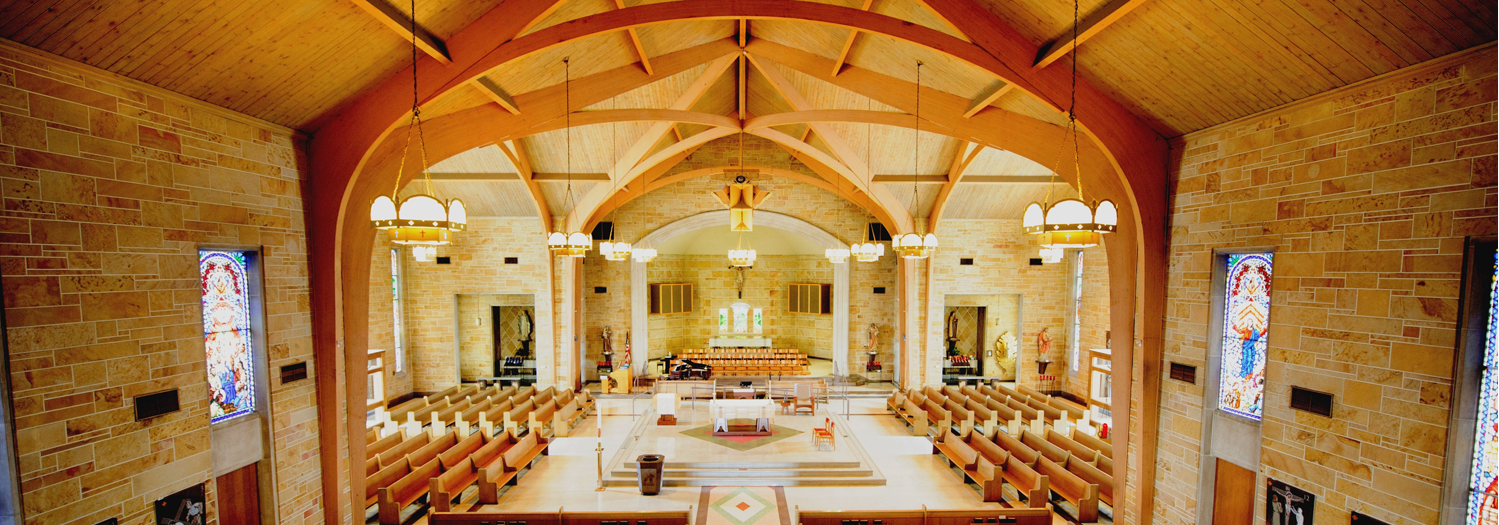Fr. Bob’s Homily
Fr. Bob’s Homily
My Brothers and Sisters,
The parable in today’s Gospel is generally called the parable of the prodigal son. The word prodigal means “wastefully extravagant,” and the Gospel tells us that the son “squandered his inheritance on a life of dissipation.” However, calling this parable the parable of the prodigal son is a misnomer. The parable would better be called the parable of the prodigal father. Another meaning of prodigal is lavish. This parable is one of three parables in Luke Chapter 15 focusing on God’s mercy. The father lavishes his son with mercy and forgiveness. Today’s parable, then, is another invitation to reflect on the Sacrament of Reconciliation.
Today’s parable gives us insight into our need for the sacrament. When we think of sin, we tend to think of our actions or failures to act. However, in this parable, Jesus focuses on the deepest meaning and primary effect of sin, namely, alienation. The younger son demands his inheritance and then alienates himself from his family by setting off for a distant country. Likewise, when the younger son returns, the older son refuses to celebrate his brother’s return. In the older son’s words to his father, he reveals his alienation not only from his younger brother but also from his father. Talking to his father, he refers to his younger brother as “your son,” suggesting that he himself has no relationship with his brother. Also, everything he says to his father suggests resentment toward his father.
After the younger son had squandered his inheritance and a famine struck the land, he found himself in dire need and came to his senses. He then tried to figure out how to talk his father into taking him back. Here we see ourselves in him. Sometimes we think we have to talk God into forgiving us. This often keeps us from approaching the Sacrament of Reconciliation. The truth is that we sometimes have a hard time believing that God will forgive us because we have a hard time forgiving ourselves.
However, while the younger son “‘was still a long way off, his father caught sight of him, and was filled with compassion. He ran to his son, embraced him and kissed him.’” Almost before his son could get his rehearsed plea for forgiveness out of his mouth, his father called for a celebration. The reality is that the father had forgiven the son even before the son asked for forgiveness. The same is true for us. Our sins are forgiven before we even commit them because Jesus died once for all. Please listen to that sentence once again. Our sins are forgiven before we even commit them because Jesus died once for all. When we ask for forgiveness from God whether in the Sacrament of Reconciliation or in our heart, we are accepting the forgiveness and reconciliation Christ gained for us by his death on the cross, just as the younger son accepted the forgiveness of his father by returning home.
When his son returned, the father called for a celebration. Because it is always difficult to admit that we have done something wrong and that it was our fault, we usually do not think of the Sacrament of Reconciliation as a celebration. However, the focus of the sacrament is not on our sins but on God’s mercy and our reconciliation.
Finally, when the older son would not join the celebration, the father took the initiative to reconcile the older and younger brother. The sacrament of reconciliation is not just about reconciliation with God but with others. There are no private sins. All sins are social. Insofar as our sins affect us and the kind of persons we are, they affect others even if others do not know it.
My brothers and sisters, St. Paul wrote that God has reconciled himself to us through Christ. In other words, the initiative in reconciliation is God’s from start to finish. At the same time, we are called to be his ambassadors. He has called us to be reconcilers and to proclaim the Gospel of Reconciliation. However, St. Paul first implored the Corinthians and implores us, “Be reconciled to God.”
